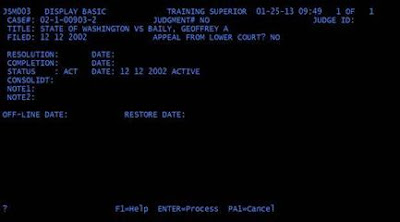In our continuing commitment to provide clean, renewable, and inexpensive sources of energy, Washington is once again the nation's epicenter for pioneering technological advances.
The US Department of Energy has teamed up with our own Snohomish PUD, providing them a $10 million grant to install two tidal energy turbines on the floor of Admiralty Inlet, just west of Whidbey Island. It's estimated the rapid tidal action there could generate more than 1 MW of electricity – enough to power about 700 homes.

This latest generation of tidal turbine is designed to run silently and have little effect on the local ecosystem.
“This funding bolsters our efforts to operate and evaluate tidal energy technology in the Puget Sound in order to assess its technical, economic, and environmental feasibility,” said PUD Board of Commissioners President Toni Olson. “We’re excited to be leading the way in the research of this innovative energy source – another tool to help us and the nation combat climate change and attain energy independence. We greatly appreciate the support of members of the Northwest Congressional delegation to help us secure this funding.”
Rep. Jay Inslee has been a strong advocate for tidal energy, as evidenced by his leadership in funding for marine hydrokinetic programs at DOE.
“Oceans hold the potential to become an unlimited supply of baseload renewable energy,” said Rep. Inslee. “Critical research and development is being done right now to harness this energy in the Puget Sound. Snohomish PUD is truly a pioneer in pursuing this innovative technology, and I congratulate them for winning this hard-earned award, which is a significant victory for Washington state and the future of renewable clean energy across the country.”
Voters in Washington overwhelmingly passed Initiative 937 in the Fall of 2006, which requires utilities to obtain a greater share of their energy supply from green, renewable sources, and reach a minimum of 15% of our supply by 2020.
Since then, the PUD has actively studied several sites in the Puget Sound, which, if developed, could produce enough energy for tens of thousands of homes. The utility launched its research effort in 2007, working with several technical partners, including the University of Washington, the Electric Power Research Institute, the National Renewable Energy Lab and Pacific Northwest National Laboratory's Marine Sciences Laboratory.
For information about the PUD’s tidal energy research and development, visit the Snohomish PUD's
website on tidal power.
 The demand for computer programmers exceeds the supply available to businesses
in Washington that want to hire them. That's an opportunity that high-school
students should take advantage of as they think about their future
careers. But at the same time, they need to make sure they complete all the
courses required for a high-school diploma.
The demand for computer programmers exceeds the supply available to businesses
in Washington that want to hire them. That's an opportunity that high-school
students should take advantage of as they think about their future
careers. But at the same time, they need to make sure they complete all the
courses required for a high-school diploma.












.jpg)


